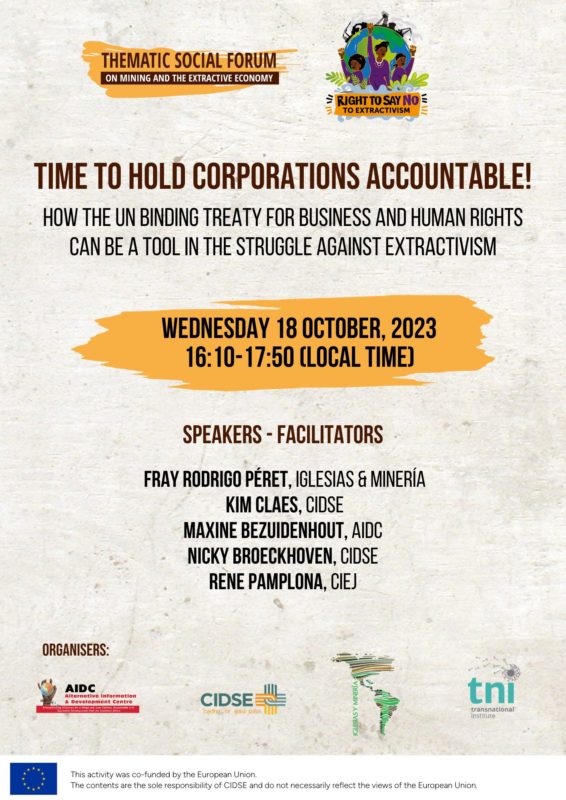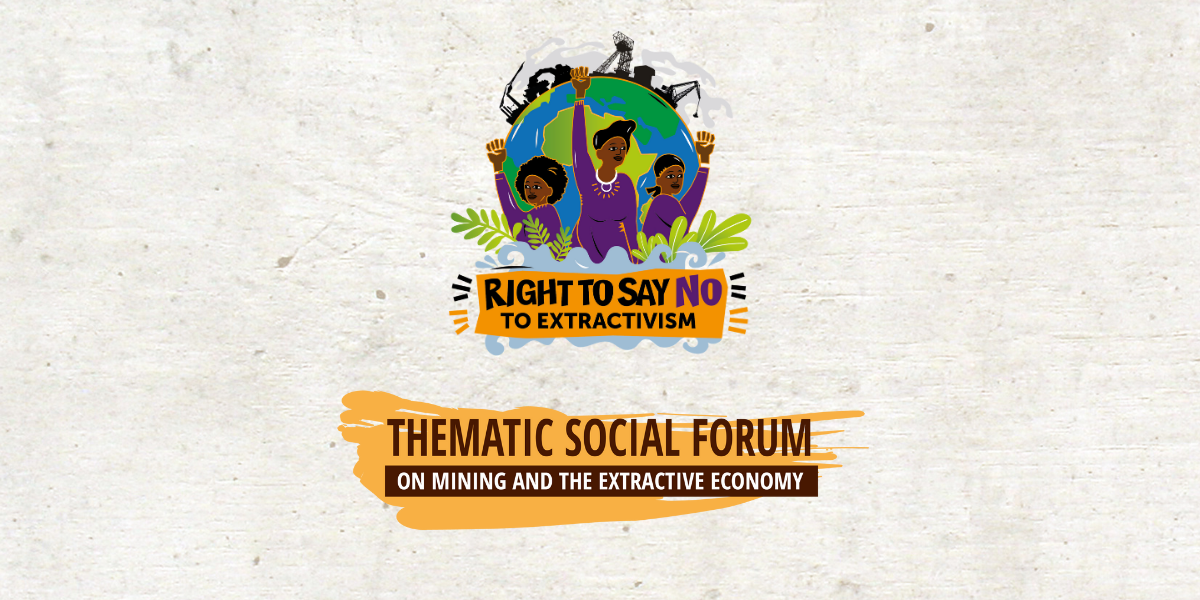Workshop Time to hold Corporations Accountable!
As part of the Thematic Social Forum on mining and the extractive economy, CIDSE, together with TNI, AIDC and Iglesias & Minería, will host the workshop “Time to hold Corporations Accountable! – How the UN Binding Treaty for Business and Human Rights can be a tool in the struggle against extractivism”, in Indonesia.
The participants will have an overview of what the added value the Binding Treaty could bring for communities threatened/affected by large scale mining project and other extractivism projects, as well as understand why and how the Binding Treaty could be a privileged space for communities and a supporting tool for their struggle. The workshop will allow participants to learn more about the link between Corporate accountability and Climate & social Justice.
Max number of participants: 25 participants.
Online participation: There is no possibility to join online.
Languages: EN, with consecutive interpretation in ES.
SPEAKERS – FACILITATORS
- Maxine Bezuidenhout – Dismantle Corporate Power Campaign Programme Officer – AIDC
- Kim Claes – Systemic Change Officer – CIDSE
- Nicky Broeckhoven – Systemic Change Officer – CIDSE
- Fray Rodrigo Péret – OFM – Franciscans International and Peoples’ Dialogue (Iglesias & Minería)
- Rene Pamplona – Convergence of Initiatives for Environmental Justice (CIEJ)

PROGRAM
Opening
Part 1: Transnational Corporate Power and local struggles
Building upon the knowledge shared by the movements and communities’ representatives, we will show how the lack of binding norms to regulate the activities of TNCs similarly affect different peoples in different parts of the world. The local struggles & realities of corporate impunity will be shared by the group. Interactive exercise in subgroups.
Part 2: The architecture of impunity: Rules for peoples, rights for corporations
The impunity of corporations is based on a structure of voluntary norms (UNGPs, certifications),Lex Mercatoria (FTAs, ISDS clauses) and rules that are mainly protecting companies, instead of communities or states. With concrete cases & examples e.g. Brumadinho case, …. It will become clear that the legislative architecture enables the impunity of companies.
Part 3: The Binding Treaty as privileged space to fight back
We give a short Introduction on how The Binding Treaty can be a feasible horizon on international level: there is an ambitious and clear mandate and committed states negotiating; have significant results in the process: not even approved and already national/regional norms being proposed and be an organizing space of struggle that articulates resistances worldwide.
Part 4: Key elements to an effective Binding Treaty
We visualise how the world could be with the Binding Treaty. We focus on the key elements of the Binding Treaty that can have a big impact on holding corporations accountable. Using examples and case studies shared by the group and facilitators, the following key elements are discussed together.
Part 5: Call to action and closure
We discuss in group what could be the next steps. To who you could reach out if you want to be involved and engaged in the Binding Treaty process? We briefly introduce the functioning of the different networks behind the Binding Treaty, focussing on the Global Campaign, one of the main networks representing a lot of social movements, unions mostly from the Global south.

